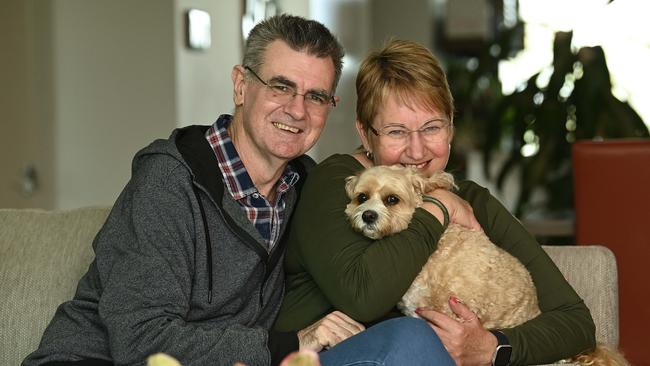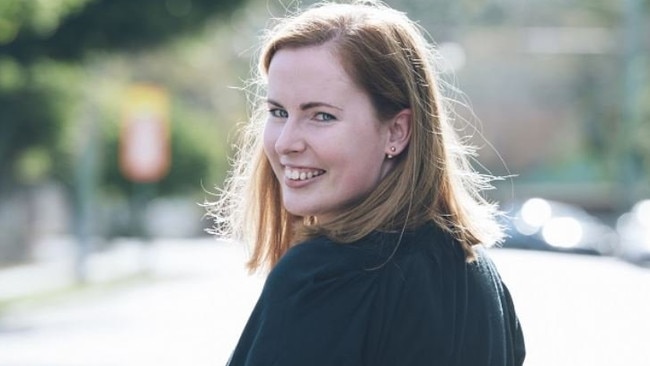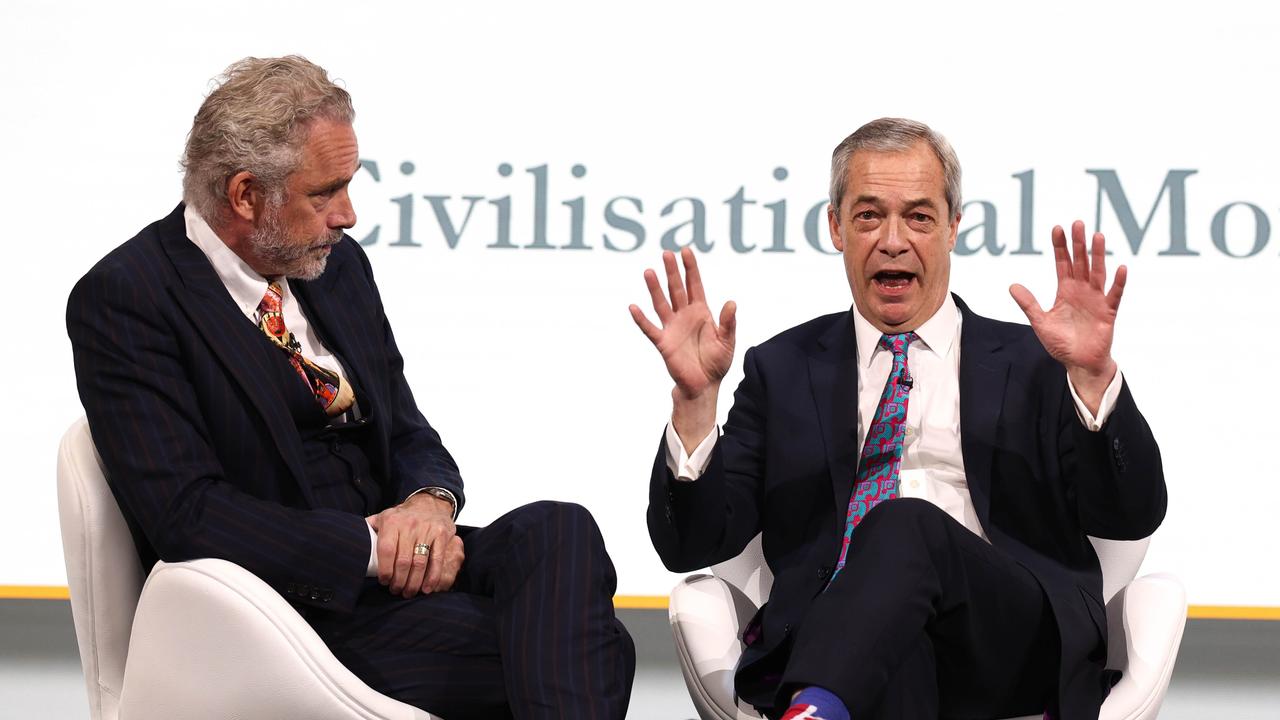Emma’s legacy taught us how to talk about death
Emma Betts should have turned 30 last Saturday and what a party it would have been.

Emma Betts should have turned 30 last Saturday and what a party it would have been. Instead, her parents, Tamra and Leon, are picking up where their darling daughter left off, keeping alive the work she did before melanoma took her.
Emma had a knack, you see. She told it how it was to live with terminal cancer with a gleam in the eye, like “someone who had committed a crime and got away with it,” in the words of her friend, writer Rebecca Sparrow. She had never been the type to sit back if a job needed doing, if someone could use her help. So the young Brisbane woman took Sparrow’s advice and poured all she was feeling and experiencing into a blog, Dear Melanoma. It lit up the internet.
Her followers loved that she kept her crimson locks and wicked sense of humour until the very end in April 2017. The lively cocktail nights she had hosted also raised serious cash for medical research into Australia’s third most deadly cancer; Emma spoke to everyone she could – and, wow, couldn’t she talk – from school kids to teachers, MPs and journalists, to tell the cautionary tale of the spot behind her left shoulder that turned into a death sentence. Don’t wind up like me, she said. Be sun smart, get your skin checked.
Through her business, Love, Emma, she did up care packages to make the day of the glummest hospital patient. They contained all the essentials – sequined slippers, pavlova-scented soap, fluffy bathrobes – things you never knew you would want until you’d been there too.
Our readers embraced her when she joined the discussion of voluntary euthanasia in these pages, offering the thoughtful perspective of someone who had actual skin in the game. As she told me a few days before she went into hospital for the last time: “Maybe I am full of myself but I want people to be part of this.”

Four years on from her death, her parents continue to lovingly tend her legacy. But it has been quite the odyssey. Tamra, 58, succumbed to a broken heart – and, no, that’s not channelling Emma in glib mode. She suffered spontaneous coronary artery dissection, a ballooning of the arterial wall that can choke blood supply from the heart, thought to be induced in some cases by grief. The episode was life threatening.
But it didn’t stop them keeping up the blog or the Love, Emma parcels. Leon, also 58, said they soon recognised neither had their daughter’s touch, so they didn’t try to match her vivid posts. These now attract more traffic than when she was alive on the Dear Melanoma Facebook page where a still-committed following of 26,000 hangs on updates from Leon about the family and ongoing fundraising for the Melanoma Institute.
A semi-retired accountant, he got to work setting up a research scholarship in his daughter’s memory through the Melanoma Institute Australia. The $15,000-a-year bursary is mostly funded by the proceeds of the care package business which Tamra runs, alongside Through the Looking Glass, the events arm of Emma Inc for her cocktail functions. These turned out to be a handy earner, raising more than $100,000 for the Melanoma Institute up to the time of her death.
It was all ticking along nicely until people started falling sick in Wuhan, China, with Covid. “Everything just hit the wall,” Leon says. They haven’t been able to throw a Looking Glass party since 2019 and that is just the “tip of the iceberg” of the disruption cascading through the charities and not-for-profit sector.
Take the Melanoma Institute, a key funder of the medical research that has revolutionised treatment of the disease. Its red-letter day is the annual March for Melanoma events held in cities and towns coast to coast. Pre-pandemic, this reaped about $1.4m, according to chief executive Matthew Browne.
Despite efforts to shift the fundraising online, Browne says the institute will be lucky to make $250,000 off Melanoma March 2021, a financial hit that has forced the lay-off of 10 per cent of its staff, mostly in non-clinical roles.
“Ultimately, you can’t do as much research and education … these programs just do get curtailed,” he warns. The JBWere and NAB Charitable Giving Index released this month shows that donations fell by 4 per cent last year and 16 per cent in the half year to December last year. More than $20bn in anticipated revenue to the sector was erased before the slump bottomed out last December. Melbourne’s Royal Children’s Hospital Good Friday Appeal this year pointed to a recovery: after donations crashed 50 per cent – from $20m to $10m last year, a shortfall made up by the Victorian government – the event bounced back to raise $16m.
The head of regulator the Australian Charities and Not-for-profits Commission, Gary Johns, has gently suggested the sector might seize the opportunity to “do some consolidation” once it gets back on its feet.
Currently, the agency has about 60,000 organisations on its books, many of them overlapping. But as we report in the news pages, people have had no means to readily search which NGO did what. The ACNC’s new online charity marketplace will fix that when it goes live in October, Johns says. Type in an area of interest – say, cancer research – and it will bring up a list of not-for-profits in that space.
“For the first time you will get real visibility and insight into how many players are in each part of the sector and I think that might generate some useful discussion and lead to a consolidation and maybe cut some costs,” the former Keating government minister says.
Leon Betts says he gets it: Covid has made people tunnel-visioned, narrowing their focus to the virus. Ongoing lockdowns and social distancing rules mean physical events remain largely a no-go, “sucking the oxygen” out of conventional fundraising. But melanoma hasn’t gone anywhere during the pandemic; the disease continues to kill 1300 Australians a year, with a new case diagnosed every 30 minutes. It is the most common cancer among young people aged 15 to 39.
If anything, the need is more urgent than ever. The Cancer Council expects deaths from all forms of the disease to surge and has commissioned modelling to project the rate. Medicare data shows that breast cancer screening in NSW contracted by 40 per cent last year.
“We don’t know yet the extent of Covid-related disruption to detection, prevention and early screening,” says the Cancer Council’s director of marketing and fundraising in NSW, Lyndsey Rice. “Our concern … is the impact of that in terms of cancer diagnoses and outcomes.”
Leon and Tamra decided to use Emma’s 30th to reboot, both to celebrate her life and drive fundraising. The Melanoma Institute came on board and they are a week into a month-long campaign in memory of Emma. Her sisters, Ashlee, 34, and Sarah, 32, have posted moving tributes on the Dear Melanoma Facebook page, while husband, Serge, a rock of support all the way through her illness, put up their wedding vows.
The responses rolled in, with people recounting how Emma’s story touched them deeply, firing a desire to help. (Among the many acts of kindness that left her awed and humbled was the GoFundMe account, set up by a friend without her knowledge, that put more than $10,000 towards a new kitchen at home with Serge: “You’ve got to ask, who donates for a kitchen?” Emma told me.)
“We got a lot of joy out of what people remember about her,” Leon says. Tamra, her eyes welling, struggles when the conversation turns to their daughter’s achievements. Leon prompts her gently: “I see with you, you find a real connection in keeping the whole thing alive.”
The pay-off is personified by University of Sydney researcher Jordan Conway, 27, the inaugural recipient of the Emma Betts PhD Scholarship. He is exploring ways to overcome the resistance of metastatic liver tumours to the new generation of immunotherapy drugs that are helping more people with advanced melanoma live longer with the disease, and in some encouraging cases to fully recover.
Leon can only shake his head. The progress made since Emma’s death is astonishing. Doctors mix and match new-generation immunotherapies such as Keytruda (pembrolizumab), Yervoy (ipilimumab) and Opdivo (nivolumab) to tailor treatment regimes that can arrest even advanced, metastatic disease. “We were that far away from saving her,” he says, pinching his thumb and forefinger.
Conway wants his work in the lab to translate direct to clinical practice. “We’re already seeing the benefits in some patient outcomes,” he tells Inquirer.
Let’s just not lose sight of Emma, a young woman who wanted desperately to live for those she loved and the good she hoped to do. Her friend, Sparrow, writes: “Four years on I am still struck by the injustice of her diagnosis. But Emma’s legacy does live on … she taught us all how to talk about death, as awkward and uncomfortable and sad as that is. It’s part of life and she took all of us by the hand and made us face up to it.”





